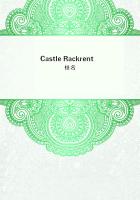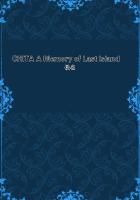"I have been abroad long enough," said Lord Earle, in reply to some remark made by Lady Helena. "The girls do not care for the sea--Beatrice dislikes it even; so I think we can not do better than to return to Earlescourt. It may not be quite fashionable, but it will be very pleasant."
"Yes," said Lady Earle; "there is no place I love so well as home. We owe our neighbors something, too. I am almost ashamed when I remember how noted Earlescourt once was for its gay and pleasant hospitality. We must introduce the girls to our neighbors. I can foresee quite a cheerful winter."
"Let us get over the summer and autumn," said Ronald with a smile, "then we will look the winter bravely in the face. I suppose, mother, you can guess who has managed to procure an invitation to Earlescourt!"
"Lord Airlie?" asked Lady Helena.
"Yes," was the laughing reply. "It did me good, mother--it made me feel young and happy again to see and hear him. His handsome, frank face clouded when I told him we were going; then he sighed said London would be like a desert--declared he could not go to Lynnton, the place was full of work-people. He did not like Scotland, and was as homeless as a wealthy young peer with several estates could well be. I allowed him to bewilder himself with confused excuses and blunders, and then asked him to join us at Earlescourt. He almost 'jumped for joy,' as the children say.
He will follow us in a week or ten days. Lionel will come with us."
"I am very pleased," said Lady Earle. "Next to you, Ronald, I love Lionel Dacre; his frank, proud, fearless disposition has a great charm for me. He is certainly like Beatrice. How he detests everything false, just as she does!"
"Yes," said Ronald, gravely; "I am proud of my children. There is no taint of untruth or deceit there, mother; they are worthy of their race. I consider Beatrice the noblest girl I have ever known; and I love my sweet Lily just as well."
"You would not like to part with them now?" said Lady Earle.
"I would sooner part with my life!" he replied. "I am not given to strong expressions, mother, but even you could never guess how my life is bound up in theirs."
"Then let me say one word, Ronald," said his mother; "remember Dora loves them as dearly and as deeply as you do. Just think for a moment what it has cost her to give them up to you! She must see them soon, with your full consent and permission. They can go to her if you will."
"You are right, mother," he said, after a few minutes. "They are Dora's children, and she ought to see them; but they must not return to that farm house--I can not bear the thought of it.
Surely they can meet on neutral ground--at your house, say, or in London; and let it be at Christmas."
"It had better be in London," said Lady Helena. "I will write to Dora, and tell her. The very anticipation of it will make her happy until the time arrives--she loves the children so dearly."
And again a softened thought of Dora came to her husband. Of course she loved them. The little villa at Florence rose before him; he saw vividly, as though he had left it but yesterday, the pretty vine-shaded room where Dora used to sit nursing the little ones. He remembered her sweet patience, her never-failing, gentle love. Had he done right to wound that sad heart afresh by taking those children from her? Was it a just and fitting reward for the watchful love and care of those lonely years?
He would fain have pardoned her, but he could not; and he said to himself again: "In the hour of death! I will forgive her then."
* * * * * * * * * * * *
The glowing August, so hot and dusty in London, was like a dream of beauty at Earlescourt. The tall trees gave grateful shelter, baffling the sun's warm rays; the golden corn stood in the broad fields ready for the sickle; the hedge-rows were filled with flowers. The beech trees in the park were in full perfection.
Fruit hung ripe and heavy in the orchards. It was no longer the blossoming promise of spring, but the perfect glory of summer.
For many long years Earlescourt had not been so gay. The whole country-side rang with fashionable intelligence. The house was filled with visitors, Lord Airlie heading the list. Lionel Dacre, thinking but little of the time when the grand old place would be his own, was full of life and spirits.
Long arrears of hospitalities and festivities had to be repaid to the neighborhood. Beatrice and Lillian had to make their debut there. Lady Helena decided upon commencing the programme with a grand dinner party, to be followed by a ball in the evening.
Ronald said something about the weather being warm for dancing.
"We danced in London, papa," said Beatrice, "when the heat was so great that I should not have felt any surprise if the whole roomful of people had dissolved. Here we have space--large, cool rooms, fresh air, a conservatory as large as a London house; it will be child's play in comparison with what we have gone through."
"Miss Earle is quite right," said Lord Airlie. "A ball during the season in London is a toil; here it would be nothing but a pleasure."
"Then a ball let it be," said Lord Earle. "Lillian, make out a list of invitations, and head it with Sir Harry and Lady Laurence of Holtham Hall. That reminds me, their eldest son, Gaspar, came home yesterday from Germany; do not forget to include him."
"Little Gaspar," cried Lady Helena--"has he returned? I should like to see him."















